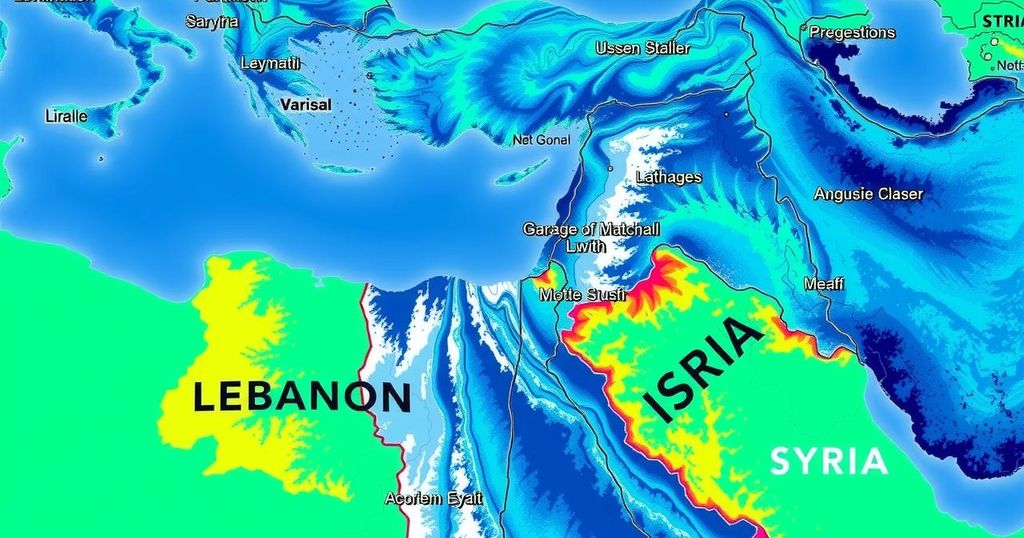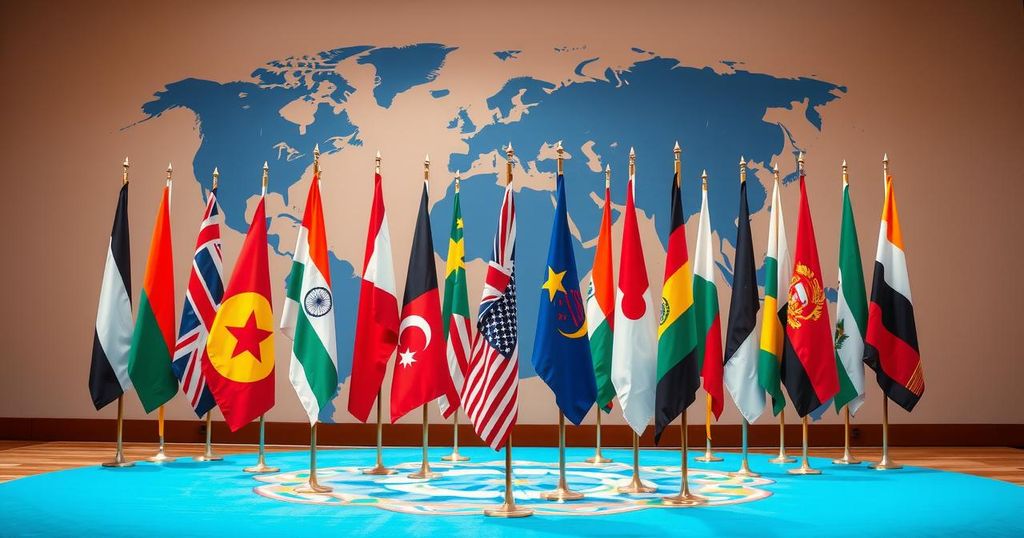Global news
AL - ASSAD, ASIA, BASHA, CONFLICT, DAMASCUS, EAST, HEZBOLLAH, IRAN, ISRAEL, JOUMBLATT, JUMBLATT, KAMAL JUMBLATT, LEBANON, MIDDLE, MIDDLE EAST, MIDDLE EAST CONFLICT, NORTH AMERICA, PROGRESSIVE SOCIALIST PARTY, SYRIA, TAYMOUR, THEN, THENATIONALNEWS, UNITED STATES, US
Jamal Walker
0 Comments
Walid Jumblatt Discusses Israel’s Aggression and the Future of Lebanon and Syria
Walid Jumblatt, a senior Lebanese politician, discusses the implications of Israel’s aggressive policies towards Lebanon and the wider region amidst ongoing conflicts. He criticizes the ineffectiveness of recent ceasefires while advocating for foreign assistance to rebuild devastated regions. His stance emphasizes the need for a united front against Israeli actions and a reassessment of relations with Syria under new leadership, amidst rising tensions following recent violence in Gaza.
Walid Jumblatt, a prominent Lebanese politician and Druze community leader, remains an influential figure in Middle Eastern politics despite stepping down from the Progressive Socialist Party in 2023. His insights are particularly relevant during the tumultuous period marked by regime changes in Syria, escalating tensions between Iran and the United States, and a weakened Hezbollah. Central to these developments is Israel’s multi-front strategy that aims to reshape regional dynamics both through warfare and diplomatic avenues.
In a recent interview, Jumblatt expressed grave concerns regarding Israel’s aggressive tactics, stating, “Israel has a free hand. It’s up to the Arabs to understand the dangerous policy of Israel that is planning to dislocate the whole of the Arab world,” underscoring the urgency of Arab solidarity against Israeli actions. He has experienced firsthand the transformations in the Middle East, notably Lebanon’s civil war that spanned from 1975 to 1990.
Today, as Lebanon grapples with the fallout from the conflict involving Hezbollah and Israel, Jumblatt criticized Israel’s ongoing military actions. He emphasized, “The Israelis have allowed themselves to attack any place in Lebanon, any place in Syria, maybe any place in the Arab world if according to them it is supposed to be a danger to them.” Jumblatt described the U.S.-mediated ceasefire agreed in November as ineffective, stating it was merely an illusion due to Israel’s persistent military presence and offensives in Lebanese territory.
Moreover, Jumblatt commended the Lebanese Army for its efforts in maintaining order, yet he acknowledged that it requires considerable international support to restore the war-torn regions of southern Lebanon. He articulated the urgent need for foreign assistance, remarking, “We need foreign help, we don’t have enough resources here to cover the terrible damage and destruction done by the Israeli army during the year and a half.”
The economic implications of Israel’s actions on Lebanon have been severe, with the World Bank estimating damage costs to be $14 billion amid a pre-existing economic crisis. Jumblatt noted the hesitance of international donors who link aid to financial reforms, questioning the relevance of such conditions when the priority should be aiding those affected by the war.
Regarding Hezbollah, Jumblatt acknowledged its dual role in Lebanese society as both a military and a political entity but cautioned against returning to past methods of armed resistance. He remarked, “Hezbollah is part of the Lebanese society. They are members of parliament. You cannot say that Hezbollah as a political entity does not exist. They do exist.”
Additionally, Jumblatt’s views extend to developments in Syria. Recently, he met with Syria’s new leader, Ahmad Al Sharaa, advocating for the stability and unity of Syria. He stated, “Give Ahmad Al Shara a chance. Because when you give Ahmad Al Shara a chance, you are giving a chance to the Syrian people.”
Amidst ongoing regional tensions, Jumblatt condemned Israeli attempts to manipulate the Druze community in Syria while highlighting the complex historical relationship involving his own family and the Syrian regime. He described events surrounding his father’s assassination as an act of divine justice following the regime’s recent changes.
On the normalization of relations with Israel, Jumblatt asserted his firm stance against such moves. He firmly stated, “I’m not favouring and will never favour peace between us and Israel,” while acknowledging the need for a new approach devoid of armed conflict. He reiterated, “No peace unless there is a Palestinian state one day, somewhere.”
The ongoing situation continues to evolve, particularly in the wake of the October 7, 2023, Hamas attacks on Israel, which significantly escalated the violence in Gaza and has since resulted in substantial Palestinian casualties. Jumblatt characterized the situation, emphasizing the systematic destruction of Gaza, binding it to broader geopolitical dynamics involving U.S. and Israeli leadership.
In summary, Walid Jumblatt articulates critical perspectives on the current geopolitical climate of the Middle East, focusing on the threat posed by Israeli policies and the necessity for a unified Arab front. His insights on Lebanon’s struggles against ongoing Israeli aggression highlight the need for urgent international assistance and reassessment of foreign aid strategies. Furthermore, Jumblatt’s calls for reconciliation with Syria’s new leadership and his opposition to normalization with Israel underscore the complexities enveloping Lebanon and the region as a whole, compounded by the humanitarian crisis in Gaza.
Original Source: www.thenationalnews.com




Post Comment